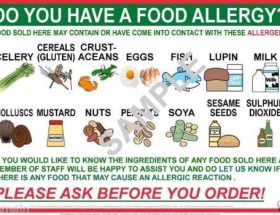In recent years, there has been a growing buzz around gut health and its impact on overall well-being. From digestion to immune function, the health of our gut plays a crucial role in maintaining optimal health. One of the key factors influencing gut health is the presence of good bacteria, also known as probiotics, and their supporting nourishment, prebiotics.
The Gut Microbiome
Our gut is home to trillions of microorganisms collectively known as the gut microbiome. These microorganisms, comprising mainly bacteria, have a significant influence on our health. They perform various functions such as aiding digestion, supporting immune function, synthesizing vitamins, and even influencing our mood.
The Role of Probiotics
Probiotics are live bacteria and yeasts that provide numerous health benefits when consumed in adequate amounts. They help restore the balance of good bacteria in our gut, improving digestion and supporting a healthy immune system. Probiotics also play a role in alleviating symptoms of certain digestive disorders like irritable bowel syndrome (IBS) and inflammatory bowel disease (IBD).
Common sources of probiotics include fermented foods like yogurt, sauerkraut, and kimchi, as well as dietary supplements. When choosing a probiotic supplement, it is essential to look for strains that have been scientifically studied and proven to be effective.
The Promise of Prebiotics
Prebiotics, on the other hand, are non-digestible fibers that serve as food for probiotics. They help nourish and stimulate the growth of beneficial bacteria in our gut. By providing a favorable environment for probiotics to thrive, prebiotics contribute to a healthier gut microbiome.
Common sources of prebiotics include foods rich in dietary fibers such as whole grains, bananas, onions, garlic, and asparagus. Including these foods in our diet can help maintain a healthy balance of bacteria in our gut and support overall gut health.
Beyond Digestion: The Impact on Overall Health
While the role of probiotics and prebiotics in digestive health is well-established, their impact extends beyond the gut. Studies have shown that a healthy gut microbiome influences various aspects of our overall health, including mental health, immune function, and even heart health.
Effects on Mental Health
Emerging evidence suggests a strong connection between our gut and brain, often referred to as the gut-brain axis. The gut microbiome is involved in the production and regulation of neurotransmitters, including serotonin, which plays a crucial role in mood regulation.
Research has revealed that an imbalanced gut microbiome may contribute to mental health disorders like anxiety and depression. By restoring and maintaining a healthy gut microbiome through probiotics and prebiotics, we may be able to positively influence our mental well-being.
Influencing Immune Function
Surprisingly, around 70% of our immune system resides in the gut. This close relationship between gut health and immune function highlights the importance of maintaining a healthy gut microbiome.
Probiotics and prebiotics play a vital role in supporting our immune system by enhancing the production of beneficial metabolites and regulating the immune response. By strengthening our gut health, we can reinforce our defense against infections and improve overall immune function.
Contributing to Heart Health
Recent research has also shown a link between gut health and heart health. Certain strains of probiotics have been found to help reduce cholesterol levels and blood pressure, both of which are critical risk factors for heart disease.
While more research is needed to fully understand the mechanisms behind this relationship, incorporating probiotics and prebiotics into a heart-healthy diet may have the potential to improve cardiovascular health.
Conclusion
From digestion to mental health and immune function, the role of probiotics and prebiotics in maintaining a healthy gut microbiome cannot be overstated. By incorporating probiotic-rich foods and prebiotic fibers into our diet, we can support the growth of beneficial bacteria, optimize our gut health, and enhance our overall well-being.
However, it is always advisable to consult with a healthcare professional before making any significant changes to your diet, especially if you have existing health conditions or are on medication. With their guidance, you can find the probiotics and prebiotics that will best suit your specific needs and contribute to a healthier gut.






